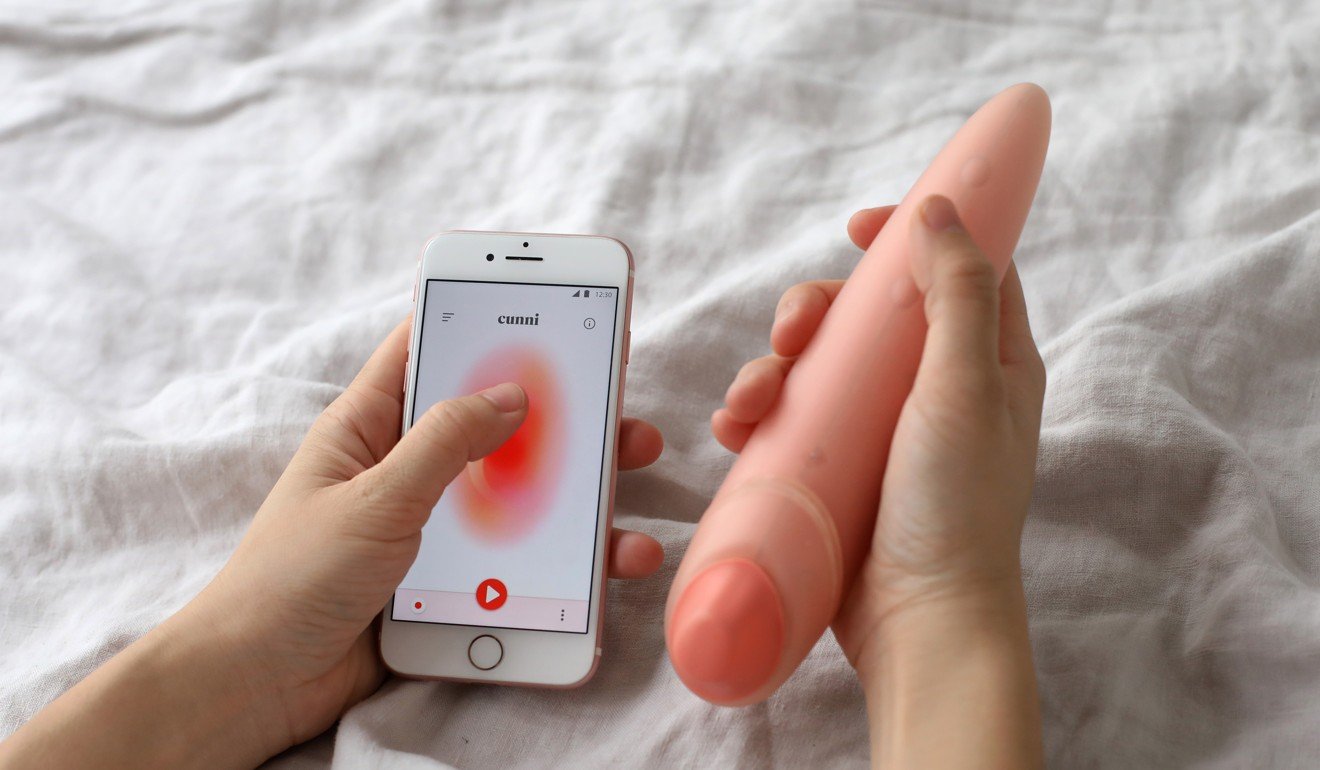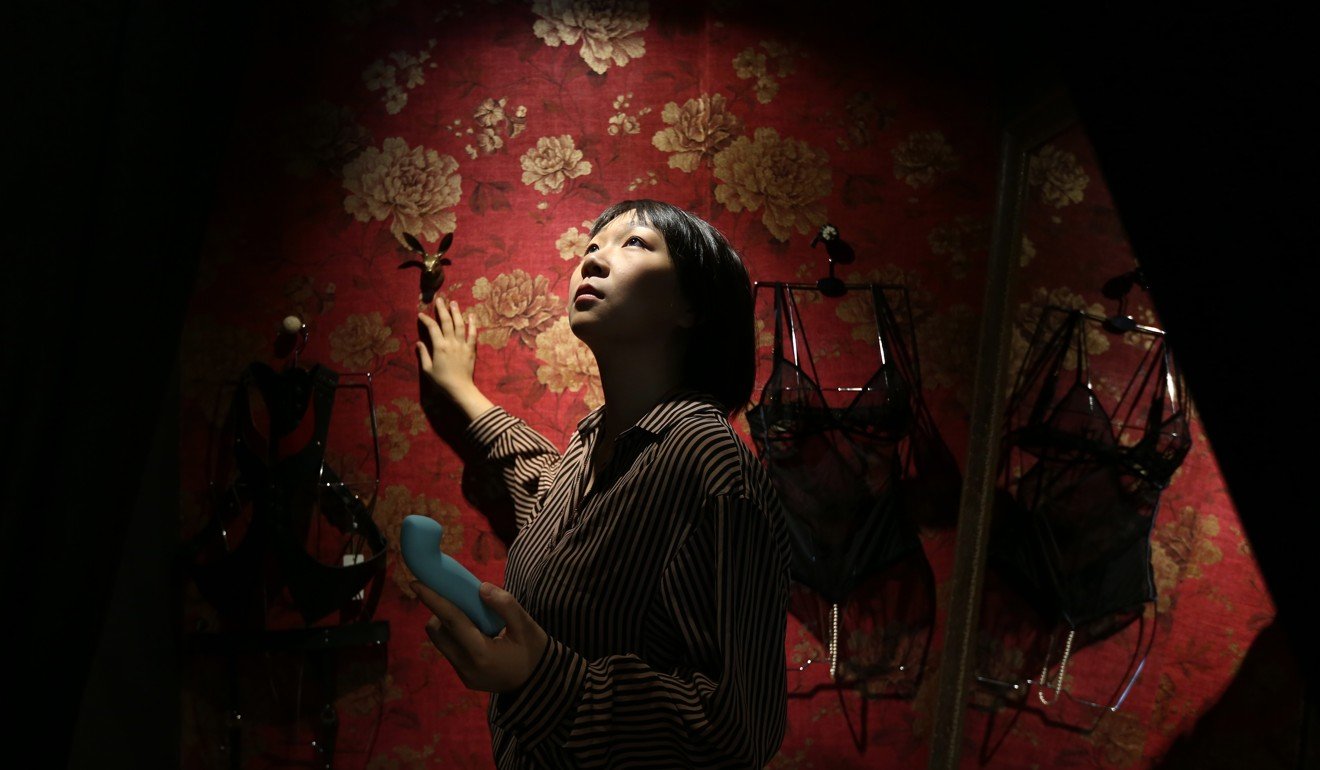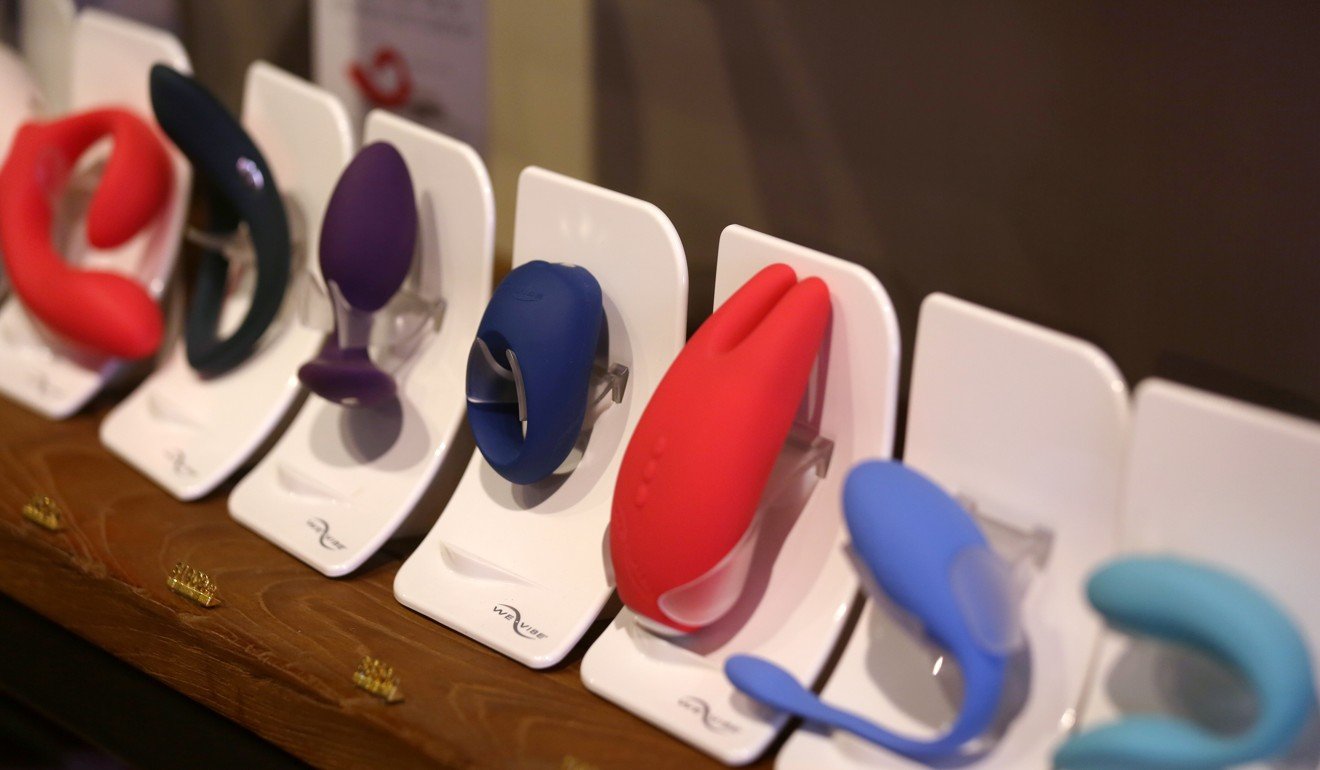
The Hong Kong couple behind Cunni, a smart sex toy designed with women’s pleasure in mind
Alison Tan and Sotiris Tsouris believe that their innovative new sex-tech product can change the way couples think about women’s enjoyment
On the rare occasion that schoolchildren in Hong Kong receive any education whatsoever on the subject of “the birds and the bees”, they can expect prehistoric videos of blurry limbs, scary medical diagrams, or demonstrations of latex rolled down a banana. With the focus on reproduction and disease prevention, the notion that sexual contact ought to feel good – whether alone or with a partner – never factors.
Hong Kong-based couple Alison Tan Ka-kei and Sotiris Tsouris are set to launch a crowdfunding drive to finance Cunni, an intuitive new sex toy designed with women in mind. “Diving for pearls”, “eating the peach”, or even “twitching the velvet curtain” – there’s a tendency to skirt the subject instead of confronting it head on, so to speak.
The goal of the toy is for people to learn and articulate what they like without the pressure of a partner. It’s up to individuals to decide what’s good for them as consenting adults with other consenting adults
Tan and Tsouris hope to dispel taboos and get couples talking about an activity they may have found embarrassing with the aid of their app-linked device, which remotely replicates any pattern the finger draws on the screen of a smartphone.
A millennial Masters and Johnson, product designer Tsouris and Tan, a former art director, extensively tested each iteration of the product before settling on the final design – blush-toned, carrot-shaped and more closely resembling a stylish ear thermometer than any kind of human appendage. While the device can be used for penetrative purposes, the magic lies in the articulated, silicone nib – a mechanical “tongue” – at one end, controlled using three buttons on the device for preset motions, or operated remotely via the app, where patterns can be customised.
“The goal of the toy is for people to learn and articulate what they like without the pressure of a partner. It’s up to individuals to decide what’s good for them as consenting adults with other consenting adults,” Tan says, emphasising the importance of being able to express one’s own desires while accepting those of others: “We want to send the message that you shouldn’t yuck anyone else’s yums, or yuck your own yums.”

Although stigma around women’s sexuality is present across the globe, Tan believes it is particularly prevalent in Asian culture. She attributes her own open-mindedness to a westernised upbringing, having attended international schools in Shanghai and Singapore before going to university in the United States.
Tan says it was her own experience that inspired the Cunni concept.
“I was always very curious about sex and I never felt outright shame, but that’s tied into stereotypes around Asian female sexuality and I delighted in rebelling against that by being promiscuous,” she says.
“However, in recent years, I’ve been able to reflect on how that promiscuity was very surface-level empowerment; I might have had a lot of partners, but I was not getting pleasure in those relationships. My relationship before Sotiris was practically sexless. I had to think about how I had erased my own sexual identity in a relationship despite identifying as a very sensual person,” says Tan.

It was shopping in a sex-toy boutique, Sally Coco, in Central, that gave Tan and Tsouris the idea for Cunni.
“Sex is not really talked about in school or even college,” says Lui. “For Hong Kong couples, it can be very hard to open up the topic of sex, let alone oral sex. They might talk about positions, but when it comes to oral sex for females, a lot of girls don’t like to be gone down on because they’re embarrassed about their vagina or their vulva and they don’t know how to react when somebody is performing oral sex on them.”
Instead of using anatomical terminology like “vagina” or “vulva”, Hongkongers are more comfortable describing women’s genitalia as “mui mui” (“little sister”), and talking about oral sex in abstract terms. Vague, euphemistic terminology is even used to advertise so-called feminine hygiene products that prey on women’s insecurity around how their vaginas smell, with soaps and perfumes that are unnecessary and even harmful. Lui says the Cunni has the potential to help couples overcome their awkwardness, while becoming closer in the process.
“Showing your partner on an app will make it easier to talk about the subject than saying: ‘Hey, you’re not doing this right, can you do this?’” she says.

Despite what pornography might suggest, only 18 per cent of woman are able to achieve orgasm through vaginal penetration alone, according to a study published last year in The Journal of Sex and Marital Therapy, which surveyed more than 1,000 women between the ages of 18 and 94. In one-night stands or short-term hookups, where partners are unfamiliar with each other’s bodies and preferences, the pursuit of pleasure can be more trouble than it’s worth for women.
“Women talk themselves out of the potential for an orgasm because it’s a hassle,” says Tan. “I think one of the greatest acts of sexual empowerment we could do as a gender is to not sleep with people who don’t care about our pleasure.”
Earlier this year, US rapper and record producer DJ Khaled was at the centre of a controversy after an interview resurfaced from 2015 in which the 42-year-old revealed he does not perform oral sex on his wife because, “there are different rules for men” and “a woman should praise the man”.
Despite the likes of Lil Wayne, Kanye West, The Notorious B.I.G. and er … Sir Mix-A-Lot having proclaimed themselves cunning linguists in their verse, Khaled’s words highlighted a culturally entrenched power imbalance in perceptions of “who gives and who receives” in heterosexual relationships.
In a 2016 TED Talk that has been viewed more than 2.6 million times, author Peggy Orenstein says that although a wider conversation about sexual consent is taking place, that does not translate into women’s enjoyment and she identifies a “pleasure gap”.
“It’s time to have open, honest discussion about what happens after ‘yes’,” she says. “While young women may feel entitled to engage in sexual behaviour, they don’t necessarily feel entitled to enjoy it.”
In interviews Orenstein conducted with girls aged between 15 to 20, she found that, while they would view giving their male partner oral stimulation as “no big deal”, they were commonly reluctant to accept oral pleasure because of a sense of shame. Their genitals were “simultaneously icky and sacred”, she says.
While it was shopping for sex toys that drew the attention of Tan and Tsouris to the lack of hardware available in the field, Orenstein’s presentation offered the pair a jumping-off point for the ethos they have made central to their brand – simulating oral sex.
Several manufacturers have come up with creative ways to meet demand for clitoral stimulators that mimic the act. One popular option, the Womanizer Deluxe W500, which looks like a hands-free earpiece, features a dimple that creates suction wherever it is pressed. Another, the Volta, uses two petal-shaped protrusions. However, the bestselling device currently on the market is called Sqweel, designed by Trevor Murphy and chosen in a 2006 contest by the British sex toy retailer Love Honey.
Although the product has reportedly sold hundreds of thousands of units and was initially regarded as groundbreaking, it has a two-star rating on Amazon, and “doesn’t work at all”, according to Lui, who has tried all the above options.
“It’s an interesting concept but it doesn’t feel like oral sex; it just feels like somebody is slapping you,” she says of the Sqweel’s windmill design.
Technologically speaking, the sex-toy industry is lagging, at least in part due to a patent filed in 1998 that applied to internet-controlled sex toys, which has stymied innovation in the field for two decades. It was last owned by Tzu Technologies, a California-based company that seemed to exist solely to sue teledildonics start-ups (yes, that’s the official term) rather than to develop products of its own. The patent expired on August 4 this year and the Cunni design was revealed a day later.
“We’re one of the new products that is going to ride the new sex-tech wave, because the floodgates are opening to what is possible,” Tsouris says.
What sets Cunni apart, its makers believe, is its brand narrative; it’s a sex toy designed by two people who actually have sex together, which brings a sense of authenticity that larger manufacturers lack. Cunni’s promotional video features the pair pitching their product and sharing relationship anecdotes from their bedroom. “So rarely is a toy developed with that level of intimacy,” Tsouris says.
Being a married couple talking very openly about our journey will hopefully enable others to start having conversations around what it means to them
The Greek-British designer, who moved to Hong Kong in 2016, says his role extends beyond the hardware to appealing to other men, who may not know how to pleasure their partner, or have any interest in doing so.
“As a white, cisgender [someone whose gender identity corresponds with their birth sex] male, being able to have a voice on this platform is super important,” he says. “Coming from me, it might be more disarming to the people who need to hear it the most. It can enable us to create conversations around pleasure equality.”
Tan cuts in: “He reaches an audience that would find me preachy and shrill.”
“Being a married couple talking very openly about our journey will hopefully enable others to start having conversations around what it means to them,” Tsouris continues. “Everyone’s journey is unique, but we’re trying to create a platform that is customisable so that everyone’s needs are met.”
Cunni launched on Kickstarter on October 2, with a launch party on October 5 at CentreStage in Sheung Wan. The campaign aims to raise US$100,000 and backers will be offered discounts on the eventual retail price of US$169.

